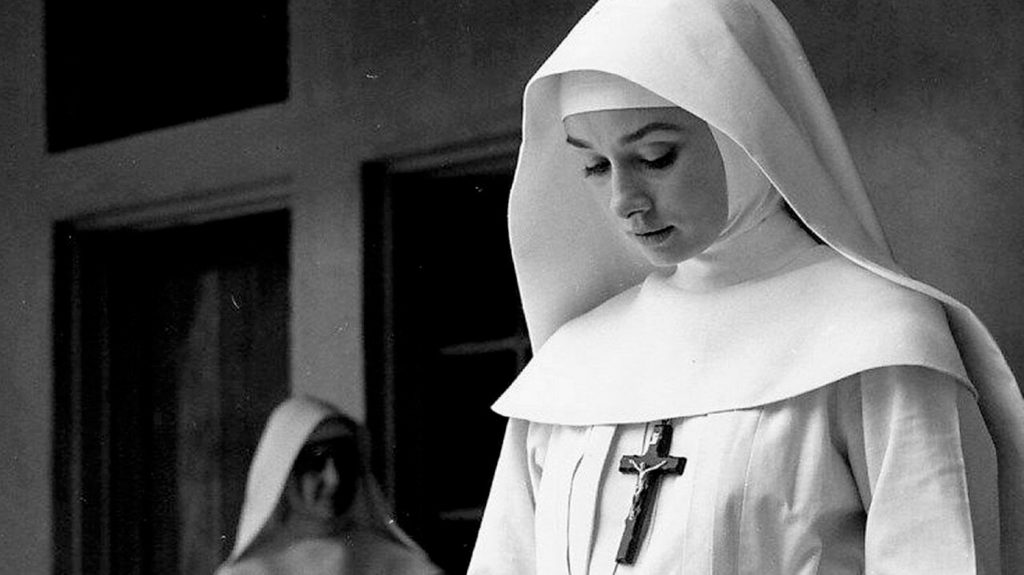The Nun’s Story, a Hollywood movie starring Audrey Hepburn, premiered today in 1959. Based on a bestselling novel of the same name by Kathryn Hulme, it tells the true story of a Belgian nun whose vocation is stretched to breaking point in Africa and in Nazi-occupied Europe. The movie was a big box office success, and Hepburn was nominated for best actress at the Oscars.
’She listened to her sisters chanting antique Latin while Germans were dropping among the dunes no more than a healthy bicycle ride distant from the hospital… The hate ran like flames through her blood and she knew that if one of those distant paratroopers were to drop at that moment onto the paving of her convent courtyard, she would have dashed out and tried to kill him with her bare hands.’ Kathryn Hulme, The Nun’s Story
King Edward I of England issued the Edict of Expulsion today in 1290, ordering county sheriffs to expel all Jewish people from England. The estimated 2,000 Jews living in the country at the time had until All Saints’ Day (1 November) to leave. Many of them went to Scotland, France and the Netherlands. The edict remained in force for 365 years until Oliver Cromwell allowed Jewish people to return in 1657.
Giotto’s Campanile (bell tower), which stands alongside Florence Cathedral, had its foundation stone laid and blessed by the Bishop of Florence today in 1334. Designed by the Renaissance painter Giotto di Bondone, who also found time to be an architect of genius, the slender, elegant tower, standing 85 metres (278 feet) tall, carries seven bells, and is decorated in sheets of red, green and white marble. Giotto died two and a half years after construction began, but work continued, with six years off for the Black Death, and the campanile was completed to his design in 1359.
Thomas Aquinas, the prolific theologian and philosopher, was canonised today in 1323, almost 50 years after he died, despite having been condemned as a heretic in his lifetime. At the Council of Trent in the 16th century, his reputation was so exalted that a copy of his massive, unfinished work, Summa Theologica (‘Summary of Theology’) was placed on the altar alongside the Bible.
On this day in 1870, during a violent thunderstorm, the First Vatican Council took its final vote on papal infallibility. Amid Hollywood-style thunder, lightning and breaking glass (clearly a divine statement of opinion, although less clear in whose favour) the assembly agreed that the Pope is infallible in all official statements of faith and morals by a vote of 433 to 2. The slightly less than perfect vote possibly means that the Pope is infallible 99.5 per cent of the time. Terms and conditions apply, always read the small print.
Image: Wikimedia
